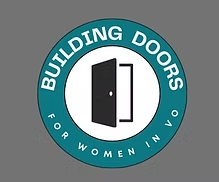 Selling a service in 2016 is a very different endeavor than it was even a few short years ago. The increasingly easy access to the internet and to more advanced features on social media platforms have changed the ways in which buyers research and purchase things. Sellers, therefore, must adjust as well. This post addresses some of the specific nuances of selling strategies that will help you take your voice-over business to the next level – enabling you to expand and develop new client relationships.
Selling a service in 2016 is a very different endeavor than it was even a few short years ago. The increasingly easy access to the internet and to more advanced features on social media platforms have changed the ways in which buyers research and purchase things. Sellers, therefore, must adjust as well. This post addresses some of the specific nuances of selling strategies that will help you take your voice-over business to the next level – enabling you to expand and develop new client relationships.
As a free-lance voice-over professional, your process for offering quality services to potential clients needs to reflect the business environment of today’s high tech age. Twitter, Facebook, LinkedIn and other social media platforms create new opportunities to communicate in streamlined ways. Voice talents who leverage these resources can cultivate much stronger relationships with their clients.
Tip: pick a social media platform and begin using it to regularly interact with top prospects also using that tool. Once you’ve mastered how to use the tool successfully, begin learning another.
Voice-over professionals benefit greatly from the technology advancements that free them from having geographic limitations on the work they do and with the clients they serve to. A voice-over artist from Illinois can just as easily work with a client in another city or state as they can with someone in their own hometown. With some simple research, a voice talent can interact and offer services to people all around the globe.
A savvy voice professional, therefore, will market their services to where the work is unencumbered with geographic concerns. Your market is limited only to the number of languages you speak.
Tip: Pick five cities you’ve never been to that have a population of at least 100,000 but that are smaller than 500,000. Find 3-5 viable prospects in each town and reach out to them to inquire about their business and to propose doing business together. Pick a city in another country and find a client from beyond your border.
Today’s consumers are very sophisticated buyers. The fast free access to loads of verifiable information on the internet means that sellers of any product expect their customers to be well educated on things like price, competitors, standards for speed of service delivery, guarantees of satisfaction, and reputations built from testimonials, or consumer ratings systems.
Tip: Develop and memorize a short elevator speech that succinctly and articulately describes what you offer clients and why clients enjoy working with you.
For voice-over professionals, the buyer is likely to have a strong working knowledge of what high quality audio should sound like, what’s required to produce it, and how much it should cost. The voice talent needs to be capable of demonstrating a similar level of industry knowledge and a willingness to produce quality work with terms and prices consistent with industry standards.
Tip: Generate a form that outlines your fees, turn-time, and guarantees of satisfaction. Make the form specific and benchmark it against publications on work standards for the voice-over industry. Keep the form as a tool to use when discussing possible projects with a prospect. However, do not share this form unless specifically asked.
In today’s modern age, executive coaching has become a secret weapon of the elite business professional. People who offer a service and who depend on their skills to market and sell that service and satisfy their clients with consistency use coaches to keep themselves at the top of their game. Such A Voice is now offering such coaching with our Career Advisory Program. To learn more about how a coach can help you to take your voice over business to the next level, click here.
If you’ve never done voice-overs but would like a complimentary consultation on how to become a practicing free-lance voice professional, click here.
Lonny Hogan is a marketing and business development expert, working directly with Such A Voice to grow the brand.





